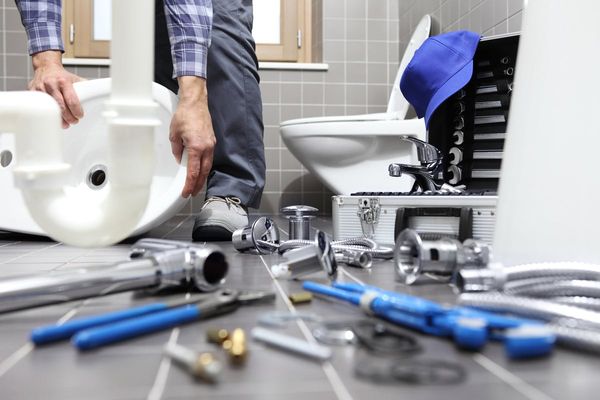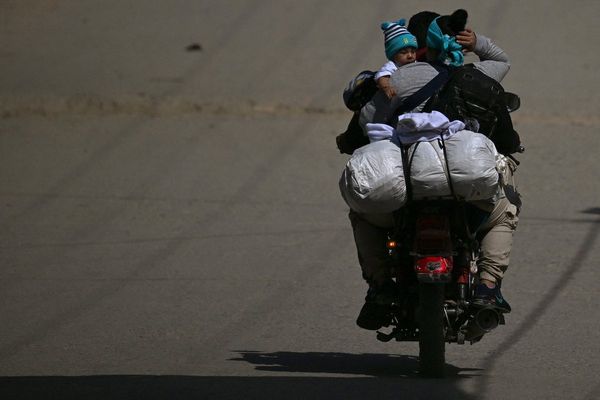Among the many lessons to be learnt by the Liberal-National Coalition parties from the election is that they should stop getting into bed with News Corporation Australia.
Why would a political party outsource its policy platform and strategy to people with plenty of opinions, but no experience in actually running a government?
The result of the federal election suggests that unlike the Coalition, many Australians are ignoring the opinions of News Corp Australia’s leading journalists such as Andrew Bolt and Sharri Markson.
Last Thursday, in her eponymous program on Sky News Australia, Markson said:
For the first time in my journalistic career I’m going to also offer a pre-election editorial, endorsing one side of politics […] A Dutton prime ministership would give our great nation the fresh start we deserve.
After a vote count that sees the Labor government returned with an increased majority, Bolt wrote a piece for the Herald Sun admonishing voters:
No, the voters aren’t always right. This time they were wrong, and this gutless and incoherent Coalition should be ashamed. Australians just voted for three more years of a Labor government that’s left this country poorer, weaker, more divided and deeper in debt, and which won only by telling astonishing lies. That’s staggering. If that’s what voters really like, then this country is going to get more of it, good and hard.
The Australian and most of News’ tabloid newspapers endorsed the Coalition in their election eve editorials.
The election result was a repudiation of the minor culture war Dutton reprised during the campaign when he advised voters to steer clear of the ABC and “other hate media”. It may have felt good alluding to “leftie-woke” tropes about the ABC, but it was a tactical error. The message probably resonated only with rusted-on hardline Coalition voters and supporters of right-wing minor parties.
Read more: Peter Dutton calling the ABC and the Guardian 'hate media' rings alarm bells for democracy
But they were either voting for the Coalition, or sending them their preferences, anyway. Instead, attacking the ABC sent a signal to the people the Coalition desperately needed to keep onside – the moderates who already felt disappointed by the Coalition’s drift to the right and who were considering voting Teal or for another independent.
Attacking just about the most trusted media outlet in the country simply gave those voters another reason to believe the Coalition no longer represented their values.
Reporting from the campaign bus is often derided as shallow form of election coverage. Reporters tend to be captive to a party’s agenda and don’t get to look much beyond a leader’s message. But there was real value in covering Dutton’s daily stunts and doorstops, often in the outer suburbs that his electoral strategy relied on winning over.
What was revealed by having journalists on the bus was the paucity of policy substance. Details about housing affordability and petrol pricing – which voters desperately wanted to hear – were little more than sound bites.
This was obvious by Dutton’s second visit to a petrol station, and yet there were another 15 to come. The fact that the campaign bus steered clear of the sites for proposed nuclear plants was also telling.
The grind of daily coverage helped expose the lateness of policy releases, the paucity of detail and the lack of preparation for the campaign, let alone for government.
On ABC TV’s Insiders, the Nine Newspapers’ political editor, David Crowe, wondered whether the media has been too soft on Dutton, rather than too hard as some Coalition supporters might assume.
He reckoned that if the media had asked more difficult questions months ago, Dutton might have been stress-tested and better prepared before the campaign began.
Instead, the Coalition went into the election believing it would be enough to attack Labor without presenting a fully considered alternative vision. Similarly, it would suffice to appear on friendly media outlets such as News Corp, and avoid more searching questions from the Canberra press gallery or on the ABC.
Reporters and commentators across the media did a reasonable job of exposing this and holding the opposition to account. The scrutiny also exposed its increasingly desperate tactics late in the campaign, such as turning on Welcome to Country ceremonies.
If many Australians appear more interested in what their prospective political leaders have to say about housing policy or climate change than the endless culture wars being waged by the coalition, that message did not appear to have been heard by Peta Credlin.
The Sky News Australia presenter and former chief of staff to prime minister Tony Abbott said during Saturday night’s election coverage “I’d argue we didn’t do enough of a culture war”.
Andrew Dodd has been the recipient of Australian Research Council funding.
Matthew Ricketson does not work for, consult, own shares in or receive funding from any company or organisation that would benefit from this article, and has disclosed no relevant affiliations beyond their academic appointment.
This article was originally published on The Conversation. Read the original article.







